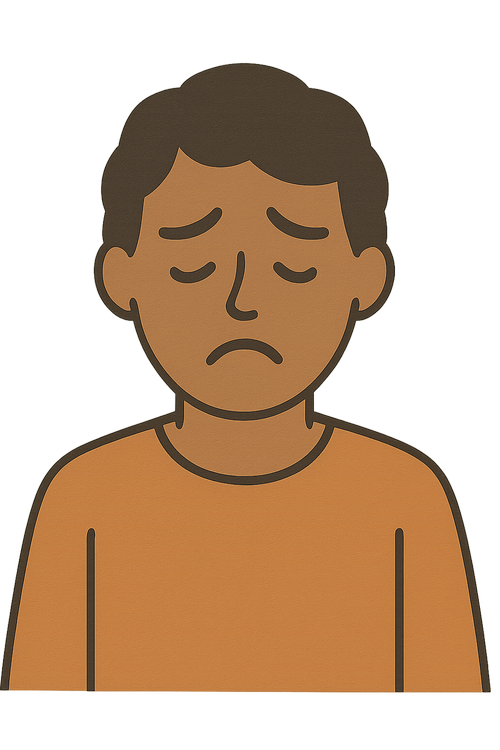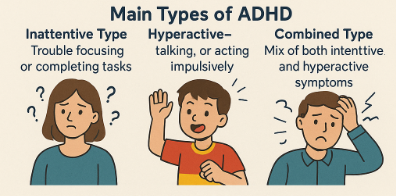It’s the first step toward healing, clarity, and reclaiming your peace of mind.
Patient Information Center
Anxiety
While occasional anxiety is a normal part of life, persistent or excessive anxiety that interferes with daily activities may be a sign of an anxiety disorder.
Why It’s Important to Seek Healing for Anxiety:In summary: Anxiety is more than worry. Seeking healing through therapy, medication, mindfulness, or support is essential to live fully.

Depression
Depression is a serious mental health condition characterized by persistent feelings of sadness, hopelessness, and a lack of interest or pleasure in daily activities.
Common Symptoms of Depression:- Persistent sadness or emptiness
- Loss of interest in activities once enjoyed
- Fatigue or lack of energy
- Appetite or sleep changes
- Difficulty concentrating
- Feelings of guilt or worthlessness
- Thoughts of death or suicide
- Treatable: Therapy, medication, or lifestyle changes can restore balance.
- Prevents Worsening: Avoids more serious issues before they escalate.
- Improves Life Quality: Helps you reconnect with joy, people, and purpose.
- Physical Health: Depression is linked to heart disease and chronic illness.
- Better Relationships: Healing supports communication and connection.
In summary: Depression is not weakness—it's a medical condition that deserves attention. Seeking help is an empowering step toward healing.

ADHD
ADHD (Attention-Deficit/Hyperactivity Disorder) is a neurodevelopmental disorder that affects focus, organization, and impulse control. It may persist from childhood into adulthood.
Main Types of ADHD:- Inattentive Type: Trouble focusing or completing tasks.
- Hyperactive-Impulsive Type: Fidgeting, talking, or acting impulsively.
- Combined Type: Mix of both inattentive and hyperactive symptoms.
- Improves Daily Functioning: Makes it easier to focus, organize, and complete tasks.
- Boosts Self-Esteem: Reduces frustration and negative self-perception.
- Strengthens Relationships: Helps avoid misunderstandings and conflict.
- Prevents Co-occurring Issues: Untreated ADHD can increase anxiety or depression.
- Unlocks Potential: Therapy, coaching, and accommodations help people with ADHD thrive.
In summary: ADHD is manageable. Seeking help fosters understanding, confidence, and growth in everyday life.

You're Not Alone: Free Mental Health Resources
Finding the right fit often takes a bit of experimentation—some tools offer immediate relief, others help build long-term resilience.
And remember, you're not alone—these resources are free, confidential, and made just for you.
🆘 Immediate Crisis Support
988 Suicide & Crisis Lifeline
Call or text 988 or use their online chat for free, confidential support 24/7.Crisis Text Line
Text HOME to 741741 in the U.S. to speak with a trained crisis counselor, anytime.Veterans Crisis Line
Dial 988, then press 1, or text 838255 for 24/7 support tailored to veterans.
-📖 Peer & Community-Based Support
Mental Health Coalition Resource Library
Free, curated resources for anxiety, depression, youth, and more.7 Cups
No-cost, anonymous support via trained listeners in over 32 languages. Optional paid therapy available.DailyStrength
Online support groups for topics like anxiety, addiction, grief, parenting, and chronic illness.HealthUnlocked
Peer-to-peer platform with condition-specific communities supported by health-focused AI.
🧠 Self-Help Tools & Educational Resources
HelpGuide.org
Evidence-based articles on stress, mental wellness, relationships, and self-care.HeadsUpGuys
Free mental health tools and self-guided resources created especially for men.Cope Notes
Free daily text messages offering affirmations, coping tips, and journaling prompts.
🤝 Advocacy & Family Support
NAMI – National Alliance on Mental Illness
Call or text the NAMI HelpLine at 1-800-950-6264, or text "NAMI" to 62640. Offers free programs, education, and support.Mental Health America (MHA)
Offers condition-specific information, learning hubs, and caregiver guidance.
🔍 How to Get Started
- If you're in crisis – Call/text 988 or text HOME to 741741 for immediate help.
- For peer support or education – Join a platform like 7 Cups or DailyStrength.
- To learn coping strategies – Explore HelpGuide, HeadsUpGuys, or Cope Notes.
- Need family or referral help? – Contact NAMI or Mental Health America for personalized guidance and local options.
You don’t have to do this alone. These tools are here to help you take that next step!

